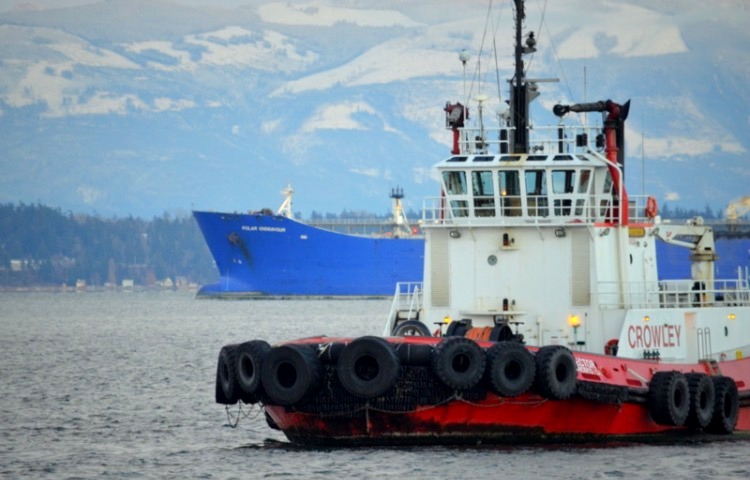Customized. Integrated. Compliant.
Preparedness Services
Since 2004, Focus Wildlife has participated Globally in over
100 planning projects, trainings, drills and exercises.
Planning
Focus wildlife has been contracted by industry; federal, state/provincial and local government agencies; oil spill response organizations; power/utility companies; and NGOs to provide expertise for wildlife risk and impact assessments; emergency wildlife response plans; development of area contingency plans; site risk assessments; wildlife mitigation planning; establishing guidelines for safe work practices; best practice standards for animal care; and human health and safety protocols.
Planning efforts have ranged from establishing protocols for the translocation of endangered species in Hawaii; training oil sands bird deterrent teams in the safe assessment and capture of oiled wildlife; developing wildlife equipment caches along North American pipeline routes; and writing plans for oiled wildlife response in the Caspian Sea.
A corporate wildlife contingency plan aids response managers in providing adequate support to the wildlife contractor’s provision of services within the framework of the Incident Command System.
Baseline Components:
Wildlife Response Strategies
Wildlife Response Management
Operational Components - Wildlife Branch
Administrative Management
Facility Development
Resource Requirements
Drills and exercises
Proactive drilling of wildlife response plans assists in streamlining procedures, identifying problems and assessing gaps within the wildlife planning process. Both wildlife-specific exercises and wildlife-incorporated drills are excellent means of testing wildlife response plan viability within the Incident Command System. Frequent drilling of wildlife plans allows for lessons learned to be adapted into the wildlife plan and response procedures in advance of an incident.
Goals and Objectives
Working within the Incident Command System
Assist with wildlife-component preparations for exercises (ICS)
Participate during scheduled drills
Identify roles and responsibilities
Test trained staff on wildlife issues
Test notification procedures and triggers for wildlife response activation
Test facility preparedness
Test resource accessibility, procurement and cost-recovery mechanisms
Test trained/convergent workforce planning efficacy
Test media relations planning efficacy and public relations mechanisms for wildlife
Test Wildlife Branch communication with the Environmental Unit
Test regulatory compliance of wildlife operations
Test incident-specific wildlife plan development
Test wildlife reporting protocols, information provision and chain of command
Identify agency support requirements
Training
Focus Wildlife offers a selection of training courses focused on health and safety, oiled wildlife response, oiled wildlife care and rehabilitation, planning and preparedness. Each course is tailored to meet the specific regional and organizational needs of our clients. Client-tailored courses support local resource development, regional capacity building and on-going training. Post-training discussions and follow-ups are encouraged and fostered.
Health & Safety Training
4 Hour HAZWOPER
This four hour short course introduces attendees to health and safety topics during emergency response. Four hour HAZWOPER training is the shortest time unit allowed for working in a discrete capacity with oiled wildlife.
8 Hour HAZWOPER
This course provides a two-part overview of oiled wildlife response efforts. The training offers an in-depth view of the overall response structure and context in which oiled wildlife response takes place and the basic guidelines used in caring for oiled wildlife. Topics include the National Incident Management System (NIMS) and the Incident Command System (ICS), health and human safety, field operations, wildlife search and collection, and oiled wildlife rehabilitation.
24 Hour HAZWOPER
This three day course provides an in-depth understanding of health and safety concerns in oiled wildlife response. 24 hour HAZWOPER training is the minimum level of training required for many opportunities to work with oiled wildlife, particularly those that require field work.
40 Hour HAZWOPER
This five day course provides an in-depth understand of health and safety concerns in oiled wildlife response. 40 hour HAZWOPER training is the maximum level of training required for oiled wildlife first responders.
Oiled Wildlife Response Training
Introduction to Oiled Wildlife Response
This course provides an overview of oiled wildlife response efforts. The training familiarizes volunteers with the structure of an oiled wildlife response and the basic guidelines used in caring for oiled wildlife.
Basic Oiled Wildlife Response Training
This course provides a two-part overview of oiled wildlife response efforts. The training offers an in-depth view of the overall response structure and context in which oiled wildlife response takes place and the basic guidelines used in caring for oiled wildlife. Topics include the National Incident Management System (NIMS) and the Incident Command System (ICS), health and human safety, field operations, wildlife search and collection, and oiled wildlife rehabilitation.
Advanced Oiled Wildlife Response Training
This training provides an in-depth look at oiled wildlife response efforts. The training focuses on the overall response structure, oiled wildlife response operations and hands-on training in field operations and oiled wildlife decontamination. Topics include the National Incident Management System (NIMS) and the Incident Command System (ICS), health and human safety, field operations, wildlife search and collection, and oiled wildlife rehabilitation.
Introduction to Oiled Wildlife Response for Industry
This training provides an overview of oiled wildlife response. The training goes over the goals of an oiled wildlife response, examines the structure of the response and the basic guidelines used in caring for oiled wildlife.
Basic Oiled Bird Recovery & Rehabilitation
This training gives an overview of oiled wildlife response efforts, following a bird through the animal care process from capture to release. The training examines the structure and coordination of an oiled wildlife response and the basic guidelines used in caring for oiled wildlife.
For more information on specific and/or customized services, please request Focus Wildlife’s Services Summary and Statement of Qualifications.





